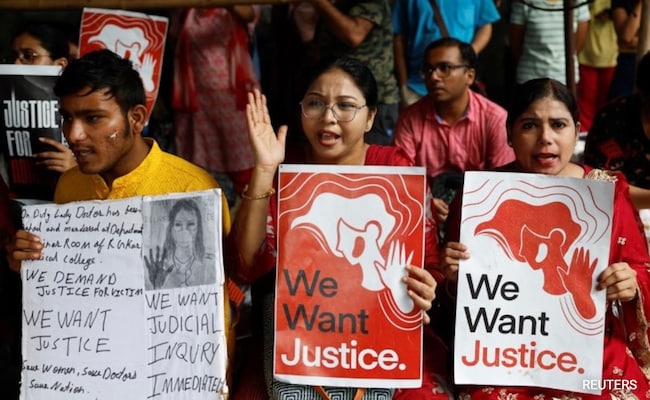
On Thursday, medical practitioners across India initiated a suspension of outpatient department (OPD) services, part of a broader, nationwide strike. This drastic measure comes in response to the recent incident in Kolkata, where a brutal assault sparked outrage and calls for immediate action. This collective action aims to address not only the specific incident but also broader issues of safety and systemic failure in addressing violence.
The incident that triggered this unprecedented response occurred last week in Kolkata, where a young woman was reportedly assaulted, an event that has since dominated headlines and elicited a strong reaction from the public and professionals alike. In protest, healthcare providers are demanding more robust protection measures and stricter enforcement of laws to safeguard citizens, particularly vulnerable groups.
The strike, orchestrated by various medical associations, has seen wide participation. Major hospitals in Delhi, Mumbai, Bangalore, and other cities reported minimal OPD operations, as doctors limit their services to emergency care only. This decision, while difficult, underscores the medical community’s solidarity and its commitment to societal safety, aligning with their oath to protect life.
Doctors and healthcare workers, often seen as first responders to societal issues, are using this strike to highlight the intersection of healthcare and social justice. By withdrawing non-emergency services, they aim to push for meaningful dialogue and action from policymakers. The strike has not only disrupted routine medical care but has also sparked conversations about the safety of both healthcare providers and patients within the premises of medical institutions.
The impact of the strike is palpable, with patients facing delays and rescheduling of appointments. While emergency services continue to operate, the lack of OPD services has created a backlog and increased the burden on emergency departments. Hospitals are advising patients to check the status of their appointments and to seek medical care only in urgent situations.
In solidarity with the striking doctors, various citizen groups and NGOs have organized marches and demonstrations, echoing the call for justice and reform. Social media platforms are flooded with messages of support for the strike, along with demands for stronger legal actions and policies to prevent such incidents in the future.
Government responses have been varied. Some officials have met with representatives from the medical community to discuss immediate steps and long-term strategies to ensure the safety of both healthcare professionals and the general public. Proposals under consideration include increased security at hospital premises, fast-tracking legal processes for crimes against healthcare workers, and public awareness campaigns about violence and its repercussions.
The medical strike has also reignited debates about the working conditions of healthcare professionals in India. Long hours, insufficient resources, and exposure to violence have been longstanding issues. The current situation has brought these challenges to the forefront, urging a reevaluation of how healthcare is administered and protected in the country.
As the strike continues, its effects are expected to extend beyond the immediate disruption of healthcare services. It is a call to action for systemic change, emphasizing that the safety and well-being of both healthcare providers and the public are intertwined. The coming days are crucial as both the medical community and government officials navigate this complex issue, seeking solutions that will restore OPD services and, more importantly, ensure a safer society.
While the immediate focus remains on resolving the current crisis, the underlying issues highlighted by the strike suggest a long road ahead in addressing systemic challenges in healthcare and public safety. The resolve shown by doctors and support from the public could potentially lead to significant changes, shaping future policies and the overall approach to violence and safety in India.
